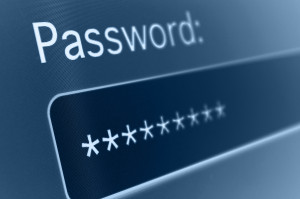Password/Browser Security
In today’s technological world, everything requires a login with a username and password. While some have become more vigilant and made up “crazy long passwords which no one can crack” and others still are using “mommy123,” your family and friends can actually see your passwords with a couple of clicks!
Continue reading to learn how this can be done, in order to protect yourself!
Passwords have become like social security numbers, where one makes a conscious effort to protect them. However we sometimes do things which we think are secure, however they really are not. On such example is storing passwords within your Internet browsers.
TO ACCESS WEBSITE PASSWORDS:
Google Chrome – Go to “Settings” – Select “Show advanced settings” – Select “Manage saved passwords” – If there are websites under the saved passwords section, with circles to the right, Select the website, Select “Show” – and your password for the website is displayed!
Mozilla Firefox – Go to “Tools” – Select “Options” – Select “Security tab” – Select “Saved passwords” – Select “Show passwords” – Select “Yes” when prompted – passwords will appear for websites!
HOW TO PROTECT YOUR PASSWORDS:
Google Chrome – Remove all stored passwords (follow the steps to retrieve the password, and next to the password there will be a little “X” to remove the password.) Then make sure “Offer to save passwords I enter on the web” is unchecked.
Mozilla Firefox – Either you can remove the passwords or you can set a master password to protect all your website passwords.
To remove the passwords already stored: Follow the above steps to get to the stored password, select “Remove all” – Select “Close” – Uncheck “Remember passwords for sites.”
To make a master password: Go to “Tools” – Select “Options” – Select “Security tab” – Select “Use a master password” – enter new password both times – Select “OK”
HOW COULD IT BE SO EASY?
Google’s response to why it is so easy to retrieve website passwords is since the user allowed the guest to use the computer, and they are within the operating system, they can cause damage to the users computer (by installing malicious
software) and the passwords do not matter at that point.
Mozilla offers the ability to protect the passwords with a master lock, however the default setting is not like that, so make sure to turn it on if you use Mozilla Firefox.
WHAT ARE THE OPTIONS?
1. Make a standard, yet different password. What that means is to use a password like “g1lamc4c$” which is really easy to remember since it stands for:
g = gmail account
1- I
l- like
a- avenue
m – m
c= computers
4 = for
c= computer
$= services
Therefore, it’s easy to remember, yet the first letter varies based on the program, so it’s not one password for all your programs and websites. This is also secure due to the variable of letters, digits and characters.
2. Use a password manager program, such as LastPass to store and manage all your passwords.
WHY IS IT SO DANGEROUS?
If a friend wants to play a trick, a child or employee/employer want to access your accounts, they sit at your computer for a mere few seconds and they follow the above steps and can access all your email, social media and bank accounts – without any technological knowledge!



